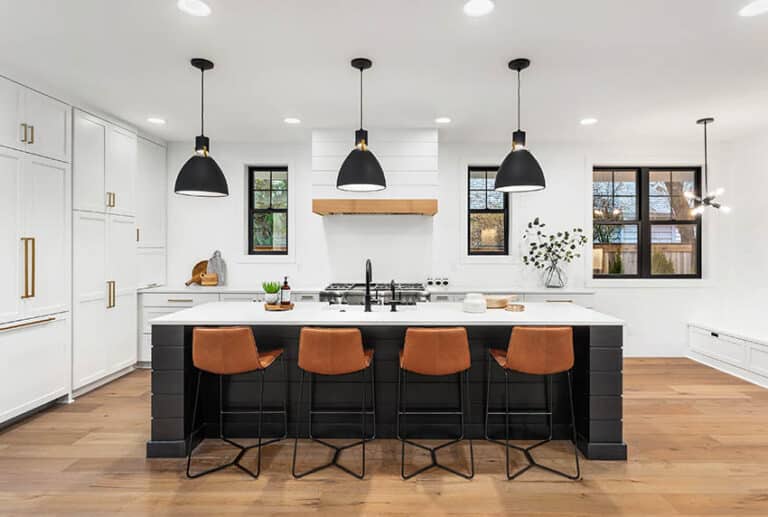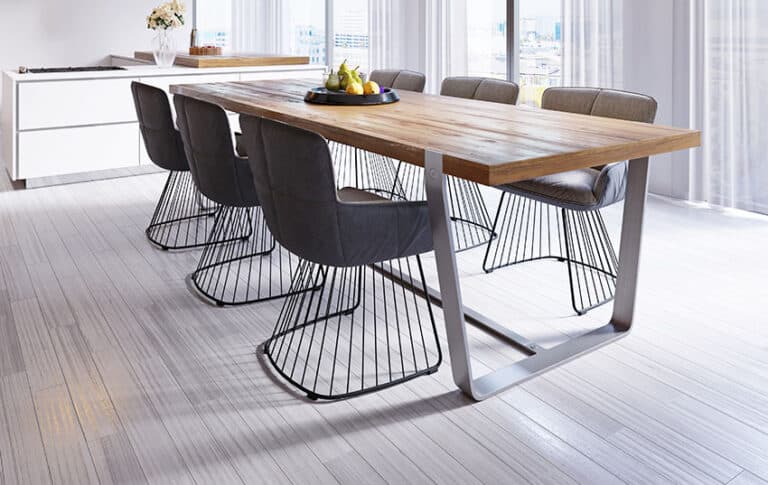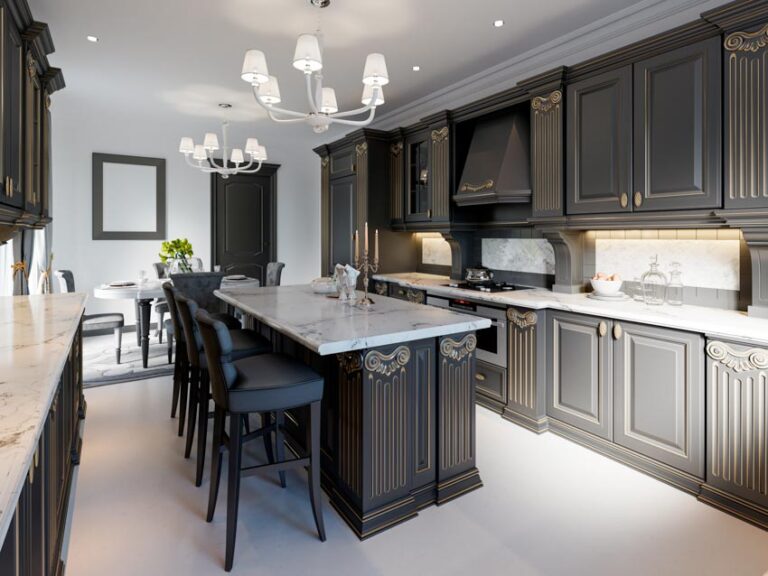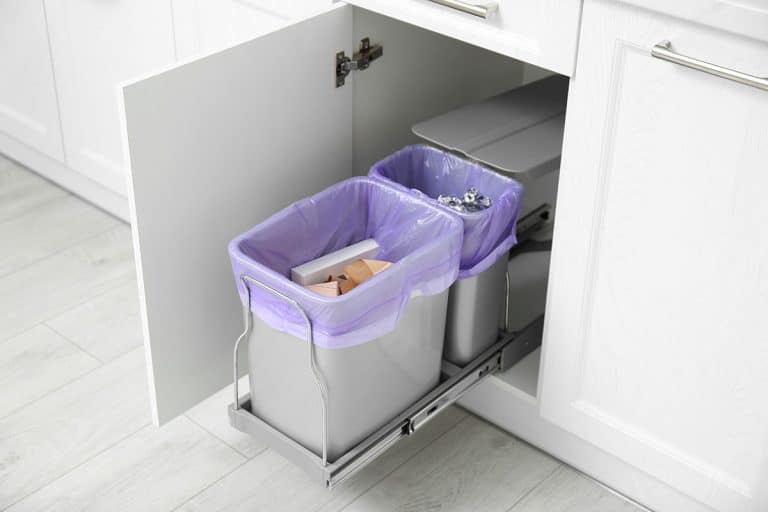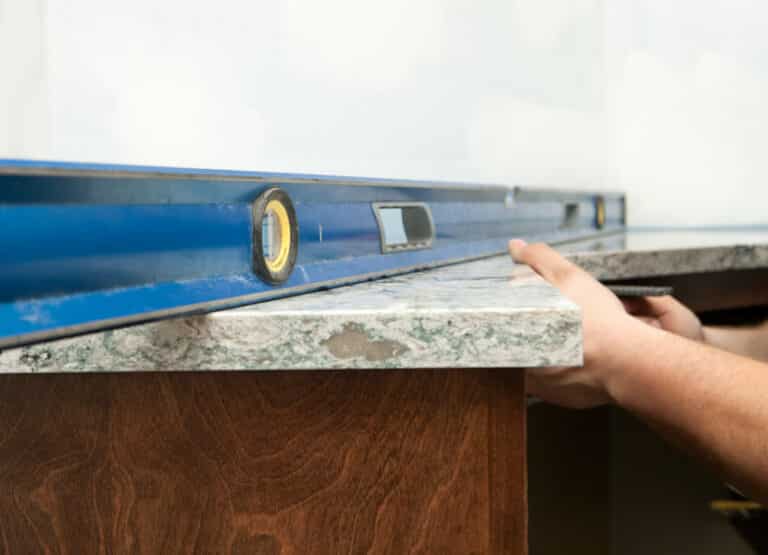Quartz VS Granite Kitchen Countertops

Quartz and granite countertops are two of the most popular choices for a home remodel project. Both materials are stylish and will help increase your home’s resale value. A common question often asked is which is better when it comes to quartz or granite kitchen countertops. Below we’ll cover the major differences between these stone countertops to help you choose the best one for your personal style and budget.
What Is Granite?
Granite is an igneous rock that is composed of quartz, feldspar, micas, amphiboles and other additional trace minerals. It is a plutonic rock that is made from 10 to 15% quartz and 65 to 90% feldspar. Granite is formed in place during the cooling of molten rock. It Is usually buried below kilometers of rock and sediment. It is 100% natural rock. Granite is mined from quarries, cut to slice and honed down until smooth.

Upload a photo and get instant before-and-after room designs.
No design experience needed — join 2.39 million+ happy users.
👉 Try the AI design tool now
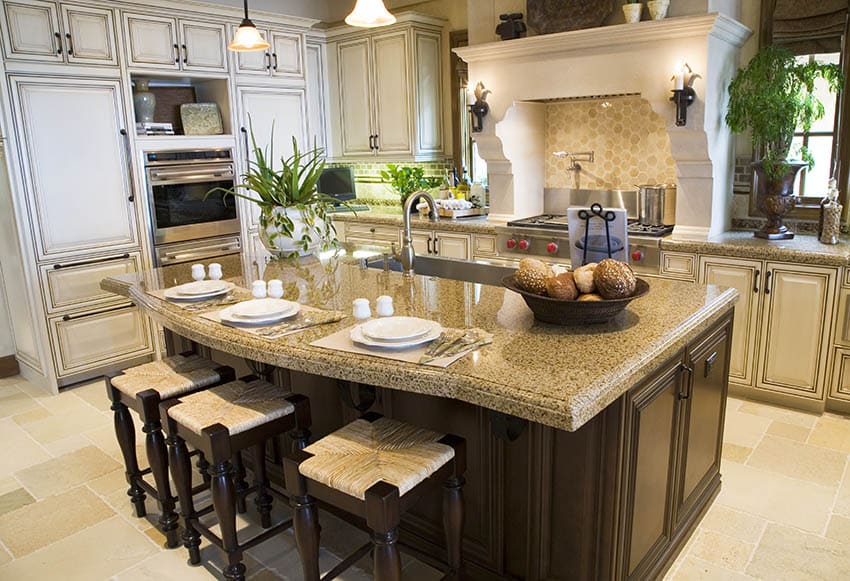
The word granite comes from the Latin “granum” which means grain. The word describes how this rock looks like, with specks of grain which shows the different compositions of rock in it. Digging up for granite is considered the oldest industry in the world which dates back to ancient Egypt.
What Is Quartz?
Quartz is a mineral made out of silicon and oxygen atoms. It is considered as the second most abundant mineral in the Earth’s continental crust. There are many different types of quartz, with some ranging in semi-precious stones. Quartz is commonly used in making jewelry and hardstone carvings. The term quartz originated from the German word “quarz”. The ancient Greeks refer to quartz as “icy cold” and they believed that it was a form of supercooled ice. This is due to the fact that quartz is chilly to the touch.
Quartz belongs to a family of trigonal crystal system. Compared to other crystals with six-sided prisms, quartz is twinned and distorted. However, not all types of quartz are naturally occurring. Some quartz are treated with heat of gamma-irradiation.
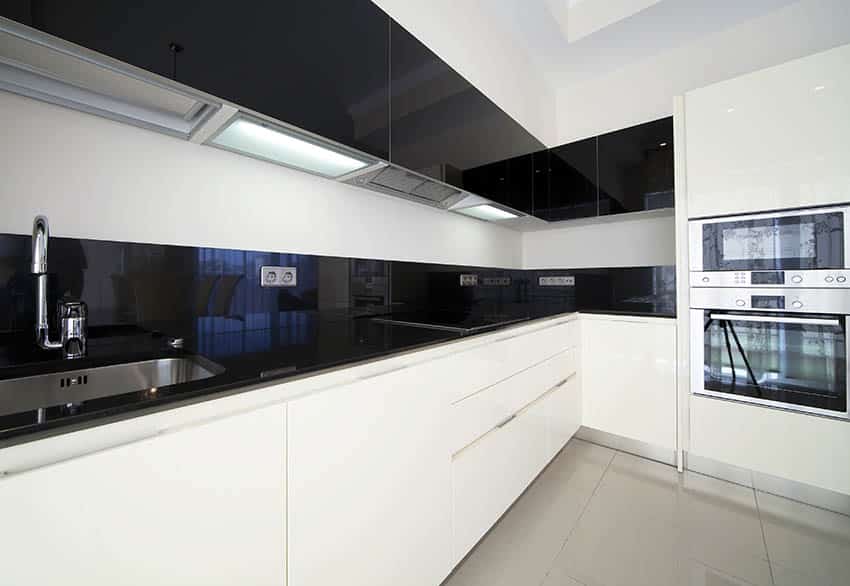
Difference Between Quartz and Granite
The appearance of granite countertops features a variety of different colors and patterns. The colors and patterns all depend on how the rock was formed. One of the best things about granite is that every single slab is unique. There are no two granite slabs that look exactly the same. Quartz has the look of stone that can be customized based on the customer’s preference. Because quartz is not always naturally occurring, it can be patterned based on the look and theme of the room it will be placed in. The selection is much easier because you can customize it.
Quartz VS Granite Cost
Granite is a natural rock so it is more expensive due to the way it is harvested from the Earth and transported to different stores. However, granite can be purchased cheaper if bought from a wholesaler. Granite slabs typically cost $60 a square foot and up depending on the color and quality.
On the other hand, for quartz countertops, you will pay a little more, generally $70 and up per square foot without installation. However, you can often find bargains on budget quartz countertops for as low as $60 a foot. Overall, quartz countertops are about 20% more expensive than granite countertops.
Granite VS Quartz Countertops Pros & Cons
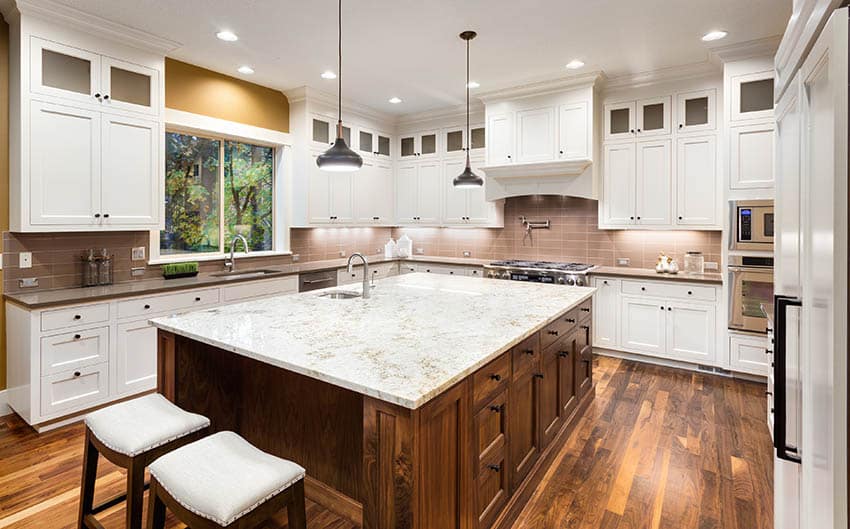
Granite is quarried so it involves digging and uses a lot of energy to harvest so it is not environmentally friendly. It also involves big trucks to transport granite from the quarries to wholesalers. One of the things that sets granite apart when compared with quartz is its visual variety. Granite looks very earthly, often featuring large striations and veining, while quartz is more flecked instead of veiny, with a consistent pattern.
Pros of Granite Countertops:
- Granite countertops have visual aesthetics that are timeless
- Granite counters come in a wide range of colors, patterns and budgets
- A distinct luminous look can be a kitchen’s focal point
- They are easy to maintain and require little effort to clean
- Adds value to the home
- When properly sealed can be stain resistant
- Granite is less porous than many other countertop materials (for example marble)
- They are scratch resistant
- They are heat resistant
- Granite slabs are unique looking with each piece different
Cons of Granite Countertops:
- Granite countertops can be expensive
- Must be sealed to avoid absorbing stains from spills
- Not a DIY project and installation is labor intensive
- Granite slabs are all different and may not provide a uniform look
- Due to its weight may require additional structural support
The fabrication and installation of granite and quartz counters alike requires professionals. So DIY is out of the question unless you’re ready to lift a near 600 pound stone countertop slab with a few of your friends or family.
Quartz is engineered so it is more environmentally friendly than granite if regionally manufactured stone and local fabrication is used. Of course, if the quartz comes from other cities or countries, transportation lowers its environmental status due to gas and energy.
Quartz and granite or both very heavy weighing around 19 pounds per square foot. Due to the weight it is advisable to get professional installation to setup and install them properly. You can read more about engineered quartz countertops here.
Pros of Quartz Countertops:
- Quartz countertops are stylish for contemporary designs
- Easy to maintain and require little cleanup effort
- Adds value to the home
- Quarts resins allow fabricators to bend and shape counter designs to the exact specifications needed
- Scratch resistant and stain resistant
- Resins in a quartz countertop create a non-porous surface
- The non-porous surface gives quartz anti microbial properties
- Not necessary to periodic seal or polish
Cons of Quartz Countertops:
- Quartz countertops are expensive
- Needs professional installation
- Quartz countertops can handle only up to 400 degrees Fahrenheit (no leaving hot pots or pans directly on the surface)
- Scouring pads can dull the surface
- Harsh chemical cleansers can break the bonds between resin and quartz
- Direct sunlight can fade quartz countertops and cause them to warp
Quartz vs Granite Maintenance
Granite needs to be cleaned daily with soap and water. You can also use a mild household cleaner on a daily basis. Granite is a rock, so it is best to avoid oils and acid spills because it may stain it. It is advised to have granite resealed at least once a year for safety. Quartz is highly stain resistant and effectively repels spills so no stains appear. Families with active children prefer quartz countertops because of this feature.
Quartz can also be cleaned with soap and water. However, it does not need to be resealed compared to granite. Quartz and granite are both heat resistant making them both ideal for a chef’s kitchen.
Quartz vs Granite Durability
Granite is very durable and lasts a long time. It is resistant to heat and liquid stains, but it does stain if oil or acids are spilled. In addition, there are many beautiful granite colors available to match practically any type of kitchen style.
Quartz kitchen countertops are engineered using 95 percent natural ground quartz. Quartz is more durable and considered harder than granite. Experts claim that quartz is nearly indestructible. It is also extremely easy to keep clean and bacteria-free because it does not absorb liquids. However, it is not heat resistant like granite. It is not advisable to place hot pots and pans on quartz countertops. Excessive heat can damage quartz. It is best to use heating pads on top of quartz tops for hot pots and pans.
In the end, the choice between granite and quartz depends on your individual needs. Granite is still considered an elegant, unique and sophisticated choice. However, more and more families are switching to quartz due to its stylish appearance, durability and stain-free features.
To see different quartz or granite counters in your own kitchen designs there are a variety of interior design software programs that can help you visualize your ideas.


